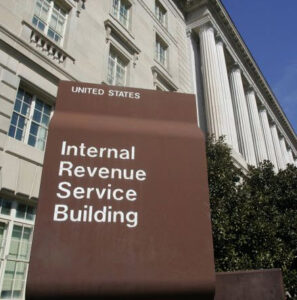We do a lot of IRS audit defense work here in San Francisco. Let’s face it: the IRS is auditing more and more taxpayers these days, and many San Francisco Bay Area residents have complicated tax returns that might be flagged. Overseas investments, stock option compensation, multi-state income, failed businesses with deductible losses – and on and on. We are in one of the world’s great centers of entrepreneurship, and that means we don’t “fit the mold.” So the IRS cometh, and you might receive an IRS audit letter. Don’t panic.
IRS Audits: Common Issues
- Go it alone or use a tax professional? Individual taxpayers who are under audit by the IRS may attend the audit in person without any assistance from a tax professional. However, this can be a dangerous mistake. Although not officially stated, it is the job of an IRS Revenue Agents to conduct an audit with an eye toward finding additional tax owed. With so many gray areas in tax law, and considering the tax code’s complexity, an individual who chooses to go it alone is a sitting duck. Without extensive tax education and experience, the examiner can (and sometimes will) say anything to find additional tax due on the return. Without the necessary knowledge, the taxpayer is powerless to refute the agent’s rationale.
- Profit or loss from a business. Many San Francisco residents have multiple business interests. These could be the Schedule C, profit or loss form a business associated with sole proprietorships. Issues associated with sole proprietorships are common audit triggers. The IRS has several approaches to achieve an increase in income tax, as well as the assessment of self-employment tax. Common areas of controversy are unreported income, losses (what is a true deductible expense comes to mind), and bartering.
Then there’s the IRS audit itself. Audit procedures can vary from a “soft notice,” usually when the IRS computers find income that does not agree with your reporting. Or there’s “examination by mail,” which (not surprisingly) means that the audit will be done entirely by mail. Then there’s a field audit. This is often a face-to-face audit. We can help you with a “pre-audit,” by examining your taxes “through the eyes of the IRS,” and look for any controversial issues such as excessive deductions or underreporting of income. That way, you’ll be less likely to be “surprised” during an audit. The IRS auditor has a job to do: increase tax revenue, by going over your returns with a fine toothed comb. Your job (and our job) is to stand by the deductions and tax reporting and make the best honest, detailed, and strongest case that is in your favor.
Every IRS audit is different. Every tax payer is different. These are just some common things to think about, if you are facing an IRS audit. Don’t go it alone. Reach out to our office for a consultation today.


